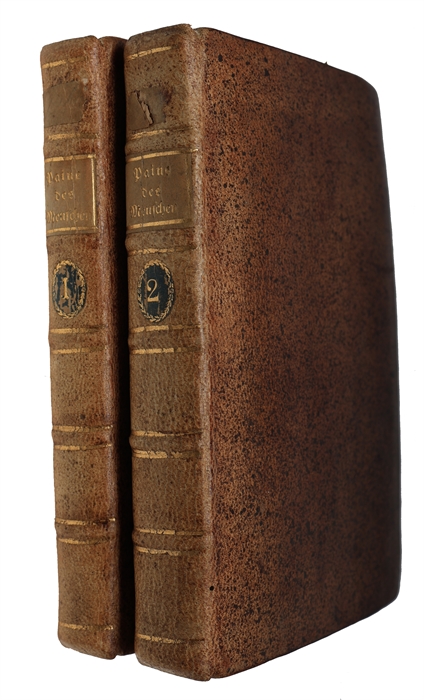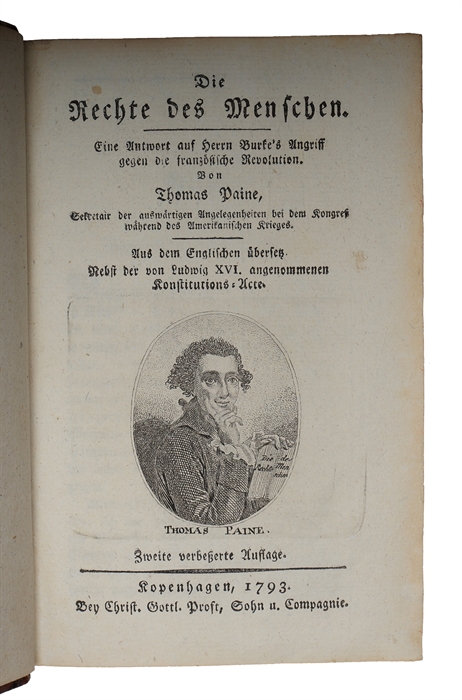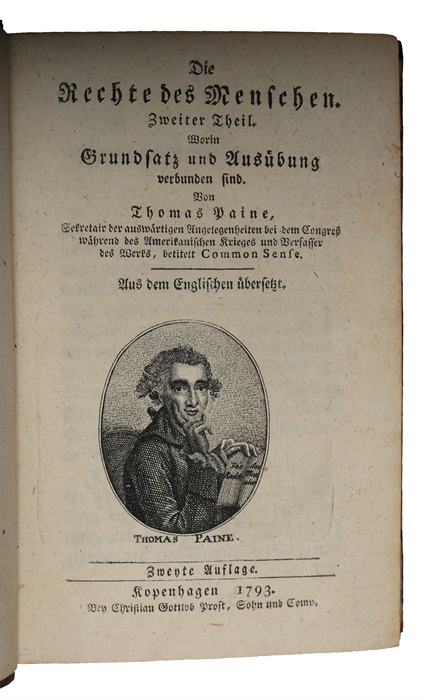FIRST GERMAN TRANSLATION OF PAINE'S "THE RIGHTS OF MAN"
PAINE, THOMAS.
Rechte des Menschen. 3 parts.
Kopenhagen, Christ. Gottl. Proft, 1793.
8vo. Uniformly bound in two contemporary full calf bindings with five raised bands and gilt lettering to spine. Small paper-label to top of spines. A few stains to boards, spine miscoloured. Internally nice and clean. XVIII, 253, (1) pp.; XXXII, 199, (3), 138 pp.
Second improved edition of the first German translation of Paine's seminal "The Rights of Man": "the textbook of radical thought and the clearest of all expositions of the basic principles of democracy" (PMM).
The work was written as a response to Burke's "Reflections on the Revolution in France" from 1790, in which Burke voices his distrust of the "Perfectibilitarians" and of the mere destructive criticism of institutions and concludes that the French revolutionaries are not fighting for real liberty and that they have no idea what it would take for them to "form themselves into a mass which has a true political personality". Reacting to Burke's excpression of the horror and dismay that the liberal-minded now felt for the French revolutionaries, Paine defends the French Revolution against Burke's attacked. He famously lays down the principles of fundamental human rights that must stand no matter what, no matter what is necessary to obtain them, and he argues that popular political revolution is permissible when a government does not safeguard its people, their natural rights, and their national interests.
Paine himself condered the work "one of the most useful and benevolent books ever offered to mankind". It was indeed hugely popular, hugely controversial, and hugely influential. Although suppressed on the day of publication, the modified version was quickly printed and reprinted. It was very widely circulated, with copies being read aloud in inns and coffee houses. Although the Revolution controversy had spawned more than 300 pamphlets, Pain's "Rights of Man" was the first seriously to damage Burke's case and to restore credit to the French both in Britain and America.
The publication of Rights of Man caused a furor in England; Thomas Paine was tried in absentia, and convicted for seditious libel against the Crown, but was unavailable for hanging, having departed England for Africa.
Order-nr.: 61180



